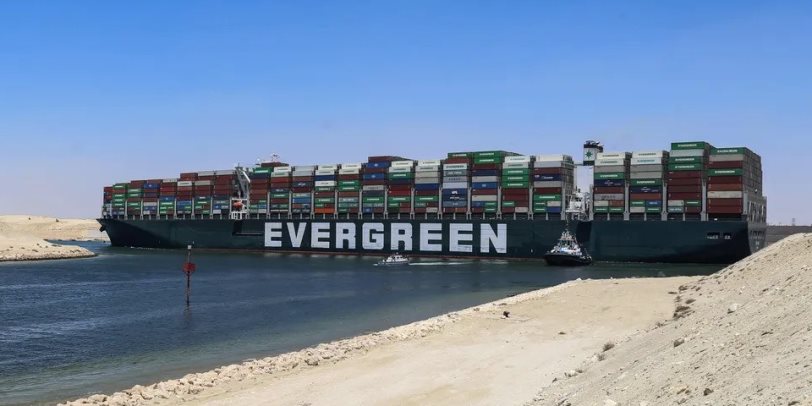Suez Canal/Ever Given Blockage and its possible Implications
Despite the expansion of the Suez Canal back in 2015, the Suez Canal/Ever Given blockage saga continues into Day 5 with no official end in sight

Despite the expansion of the Suez Canal back in 2015, the Suez Canal/Ever Given blockage saga continues into Day 5 with no official end in sight, so how has the blockage affected markets?
The container ship, noted to be longer than the Eiffel Tower, ran aground last Tuesday on 23 March and has yet to be re-floated, leading to more possible delays to already strained supply chains, particularly for European manufacturers and automakers, a credit negative.
Global Trade takes losses. Global supply chain disrupted
The global economy loses an estimated $400 million for every hour that the Ever Given blocks the Suez Canal, according to an estimate from Lloyd's List, with the canal usually passing goods worth $9.6 billion.
According to the Suez Canal Authority, the closing of the canal has led to losses between $12-14 million daily from its revenues.

Satellite image from Maxar Technologies of MV Ever Given’s blockage of the Suez Canal on March 26, 2021
With around 10 percent of world trade flowing through the canal, prolonged closure of the canal will cause delays in the global supply chain, with around 19,000 vessels having passed through the canal last year according to official figures.
The canal is an important figure in transporting oil, with its closure affecting oil and gas shipments to Europe from the Middle East.
Brent crude prices dropped 6 percent to $60.8/barrel on Wednesday, the lowest since early February, with the blockage considered part of the variables for the drop.
When it comes to shipping goods from Asia to Europe, there are virtually no alternatives such as rail or truck transportation, said Sharat Ganapati, an economics professor at Georgetown University said to USA Today.
The blockage will delay a range of parts and raw materials for European products such as cotton from India for clothes, petroleum from the Middle East for plastics, and auto parts from China, he said.

Some of the dozens of container ships that have become stranded include bulk carriers and liquefied natural gas (LNG) or liquefied petroleum gas (LPG) vessels, according to a shipping source.
IKEA, an international furniture company, said it has over 100 containers currently aboard the Ever Given and told CNN that the situation may "create constraints on our supply chain."
Other consumer goods from coffee, toilet paper to seafood could also be affected by the blockage that currently has over 320 vessels awaiting for its reopening on both sides of the canal.
Moody’s expects no real damage
Moody’s expects no significant disruption to Egypt’s B2 stable balance of payments from a sovereign perspective.
In its latest report, they highlighted that the Suez Canal represented almost 2 percent of Egypt’s GDP on average pre-pandemic, providing a significant contribution to total current account receipts.
“While declining to 1.3 percent of GDP during the acute phase of the pandemic, Suez Canal receipts have proven more resilient than other cross-border services, such as travel receipts,” Moody’s said, “A temporary disruption will not materially change our expectation of a return to pre-crisis canal receipts as global trade recovers.”
According to shipping specialist Lloyd’s List Intelligence, 114 similar-sized ships have made the same northbound journey up the canal to Europe already in 2021, without incident.
The last time the canal was blocked was in 2013, only for a few hours, and before the government’s 2015 expansion.





